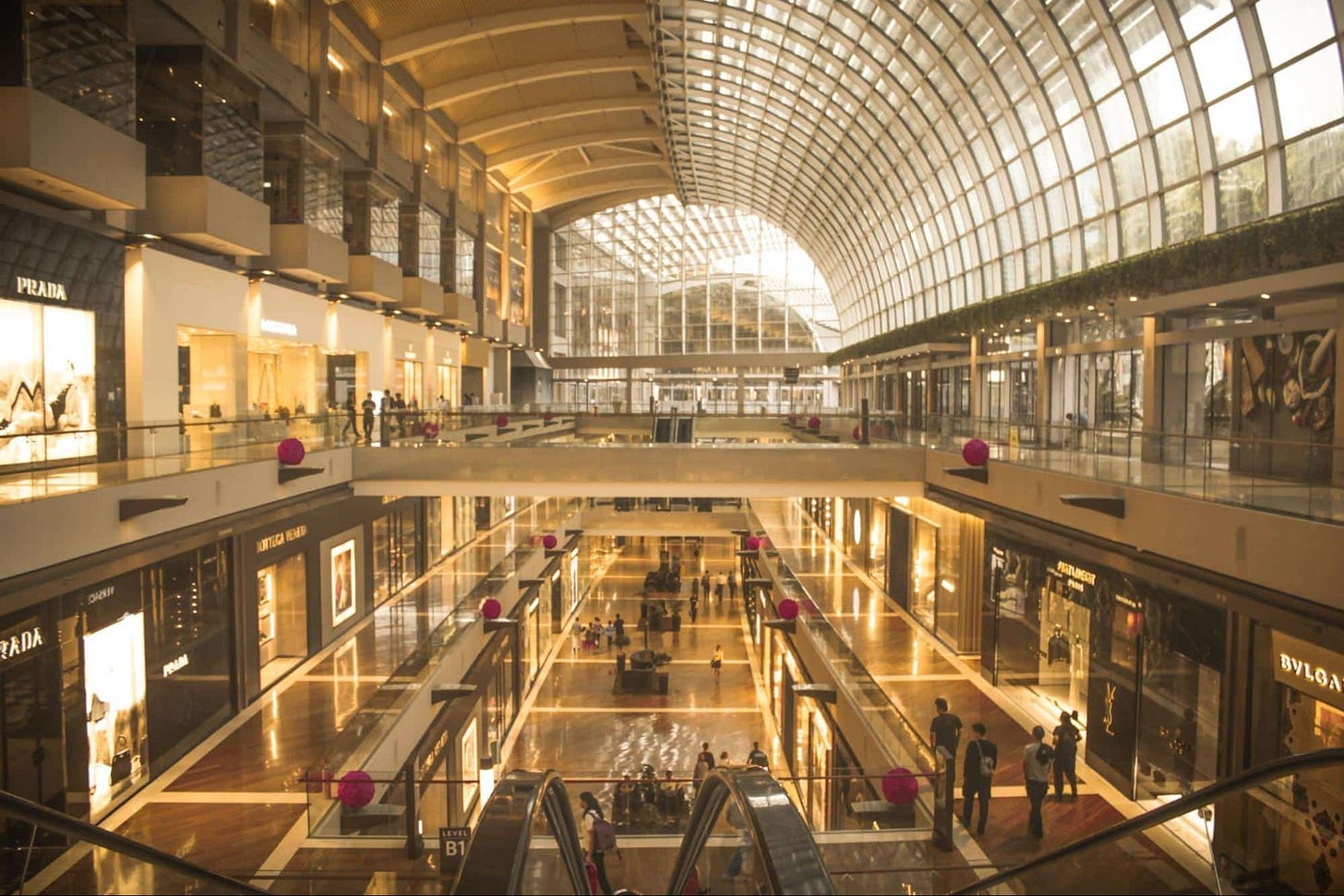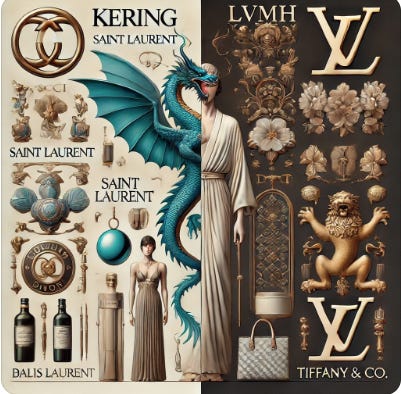Luxury retail is in a bit of an identity crisis and needs a disruptor in a big way. The majority of the luxury retail segment is dominated by two key players; LVMH and Kering. LVMH, which stands for Louis Vuitton Moët Hennessy, owns 75 brands, collectively boasting over 6,000 stores worldwide. LVMH, on paper, has seemingly operated as a “if you can’t beat them, have them join us” mentality with their latest acquisition of Tiffany and Co in 2021, set records for being the luxury industry’s largest deal, coming in at over $15B. Kering, who owns 14 luxury brands, most notably Gucci and Saint Laurent, operates across multiple sectors, including fashion, leather goods, jewelry, and watches. Kering’s business model is focused on sustainable and responsible growth, which prioritizes the well-being of its employees, the communities where it operates, and the environment.
While niche players exist, most of these large fashion houses have been in business for >50 years (Gucci is 102), and barrier of entry into this space is not easy.
When you look at the two, it’s important to remember that LVMH plays in many spaces that Kering does not. LVMH is the only conglomerate that participates in all five segments of luxury: Fashion and Leather Goods, Perfumes and Cosmetics, Wines and Spirits, Watches and Jewelry and Selective Retailing. Kering focuses its efforts on high-end fashion houses.
In 2021 and 2022, the luxury market experienced exceptional growth driven by pandemic savings and financial stimulus, with significant contributions from Asia and the U.S. This growth slowed in the second half of 2023 due to macroeconomic conditions and geopolitical tensions, affecting consumer spending, especially among the middle class.
How are they performing as of late?
LVMH reported 2% organic growth in the first half of 2024, but fell short of analyst estimates and last year's revenue. The company generated €41.7 billion ($45.2 billion) in revenue in the first half, down 1% from the previous year. The second quarter saw €20.9 billion ($22.7 billion) in revenue, up 1% year-over-year, yet below expectations.
LVMH's core business groups—wine and spirits, fashion and leather goods, perfumes and cosmetics, watches and jewelry, selective retailing—saw an overall 2% increase in organic revenue growth, except for wine and spirits, and watches and jewelry, which faced declines due to low demand in China and high staff turnover at Tiffany & Co.
Fashion and leather goods, along with perfumes and cosmetics, showed modest growth driven by Dior’s perfume lines. However, LVMH shares are down 7% year-to-date, with a notable 21% slump since March, reflecting broader trends in the luxury fashion industry.
LVMH remains a dominant player with a $375 billion valuation, despite a drop from its $500 billion peak in April 2023. The conglomerate’s strategic acquisitions and sponsorships, including its support for the Paris Olympics, continue to solidify its market position.
LVMH’s sponsorship of the Paris Olympics, including contributions from Louis Vuitton, Dior, Berluti, and Chaumet, highlights its significant role in the French economy.
Kering on the other hand - not as strong. They reported an 11% drop in revenue for the first half of 2024 compared to the same period in 2023. The company cited a slowing market in most regions, except Japan. Revenue in Japan rose by 22% when adjusted for foreign exchange effects, while broader Asia, excluding Japan, saw a 20% decline. Their flagship brand, Gucci, has seen better days: First-half revenue was down 20%, at €4.1 billion, and In the second quarter of 2024, sales dropped 19%.
Kering projected a steep decline in recurring operating profit, expecting up to a 30% year-on-year drop in the second half of 2024 due to uncertainties in luxury consumer demand. The recurring operating profit already fell by 42% in the first half of the year, consistent with earlier guidance.
Luxury Has its Challenges Ahead
Keep reading with a 7-day free trial
Subscribe to This Week In Retail to keep reading this post and get 7 days of free access to the full post archives.






